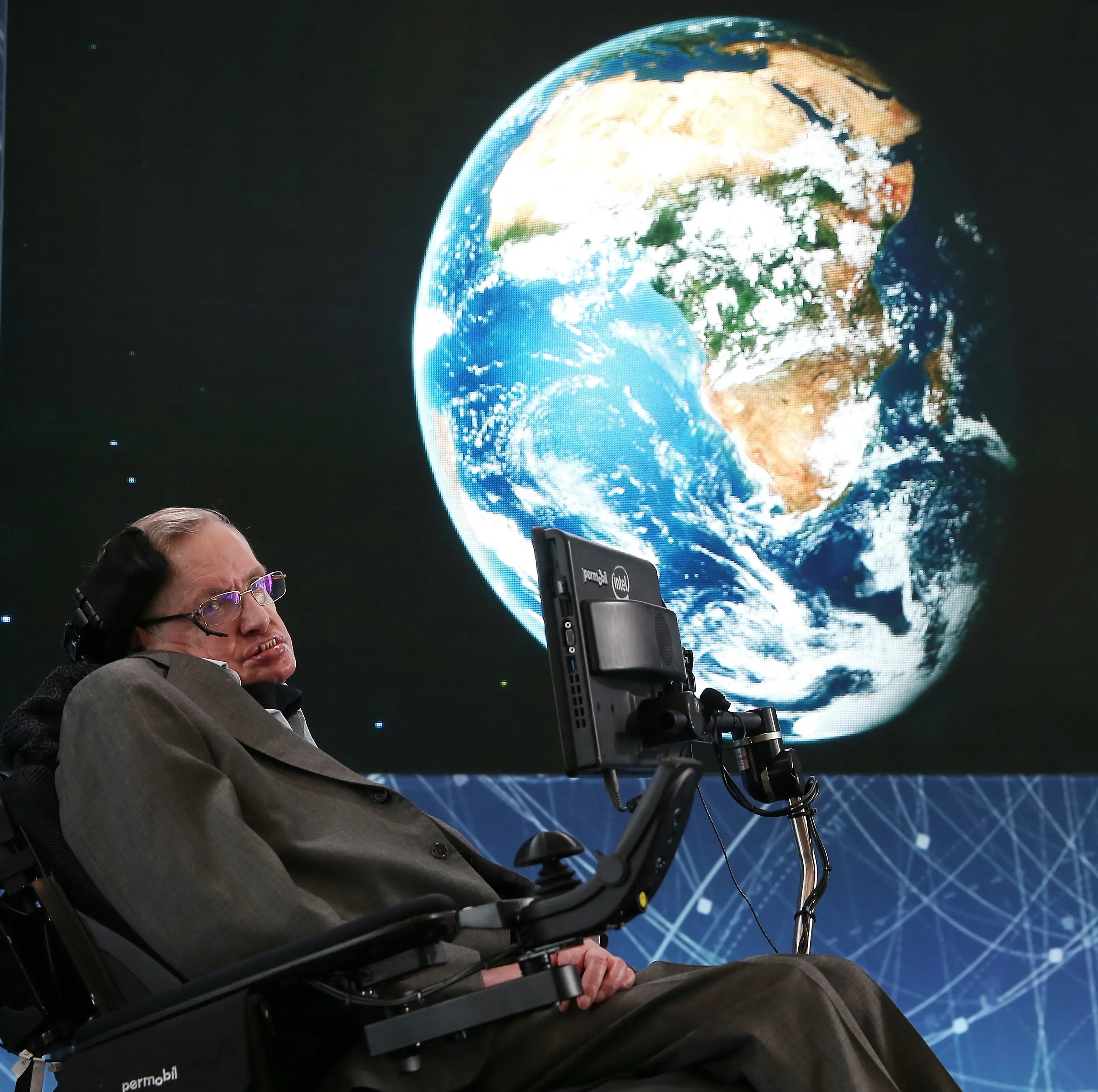
Stephen Hawking once made a dire prediction on how the world could end, and his chilling words may surprise you.
Considered one of the greatest minds to inhabit the Earth, Professor Hawking, former director of research at the Center for Theoretical Cosmology at the University of Cambridge, died in 2018, aged 76.
A year before the visionary physicist died, he cautioned that uncontrolled population growth and rising energy consumption could lead to catastrophic incidents, including the Earth transforming into a ‘giant ball of fire’.
At the 2017 Tencent WE Summit, he began by explaining there was ‘no sign’ of any scientific or technological developments slowing down or stopping in the future.
Advert
“Certainly not by the time of Star Trek, which is only about 300 years away. But the present exponential growth can not continue for the next millennium.

“By the year 2600, the world’s population would be standing shoulder to shoulder, and the electricity consumption would make the Earth glow red-hot. This is untenable”, he said.
Hawking continued, warning that if you stacked all the new books being published next to each other, you would ‘have to move at 90 miles an hour just to keep up with the end of the line.’
“Of course by 2600, new artistic and scientific work will come in electronic forms rather than as physical books and papers.
“Nevertheless, if the exponential growth continued, there would be ten papers a second in my kind of theoretical physics, and no time to read them.”
Hawking elaborated, explaining to the gathered crowd that if population growth continued at the rate it is, humans would wipe themselves out completely by some disaster, such as a nuclear war.
Atomic warfare is a very real threat, with nine countries, including the United States, Russia, and North Korea, all possessing nuclear weapons.
Russian President Vladimir Putin has increasingly used the threat of the Russian nuclear arsenal to pressure the West over its military and diplomatic support for Ukraine, as stated by the House of Commons Library.
But nuclear threats aren’t the only thing that could destroy the Earth, according to Hawkings. It turns out we also have aliens to worry about.
“There is a sick joke that the reason we have not been contacted by extra-terrestrials is that when a civilization reaches our stage of development, it becomes unstable and destroys itself,” the professor added.
“Of course it is possible that UFO's really do contain aliens, as many people believe, and the government is hushing it up. I couldn't possibly comment!”
As well as blaming tech advancements and aliens, Hawking said the world could end because of increased pandemics and the rise of artificial intelligence (AI).

According to statistics collected by Pew Research Center, a jaw-dropping 79 percent of people in the United States interact with AI almost constantly or several times a day.
Moreover, according to a UN Trade and Development (UNCTAD) report, the global AI market is expected to soar from $189 billion in 2023 to $4.8 trillion by 2033.
In another interview, Hawking credited the role of climate change as a key factor in humanity’s potential downfall.
Speaking to the BBC in 2016, the father-of-three revealed: “Although the chance of a disaster to planet Earth in a given year may be quite low, it adds up over time and becomes a near certainty in the next thousand or 10,000 years.”
He attributed his prediction to global warming and the greenhouse effect.
According to top scientists, the Earth could be doomed to breach the symbolic 1.5-degree warming limit in as little as three years at current levels of carbon dioxide emissions.
While we can’t stop global warming overnight, there are measures we can take to slow down the rate and limit of environmental strain.

This includes switching your home from oil, gas, or coal-powered energy to renewable sources of energy, such as wind or solar, and using sustainable transportation methods.
Previously, it was claimed that NASA backed up Hawking’s claims about our planet meeting its doom.
However, the leading space agency has denied the connection.
In a statement, it said: “For more than 50 years, NASA has studied our home planet, providing information to directly benefit humanity and producing observations that can only be gathered in space that address some of the areas that Hawking mentioned.”
Topics: Science, World News, Artificial Intelligence, Technology, Climate Change, Aliens, Russia
